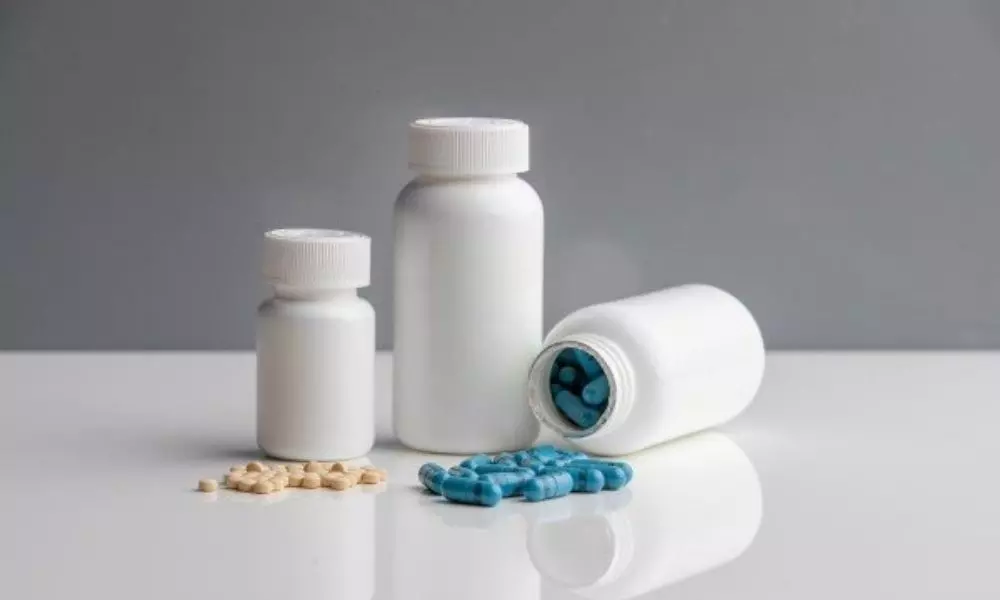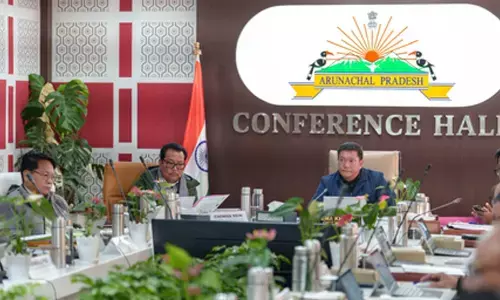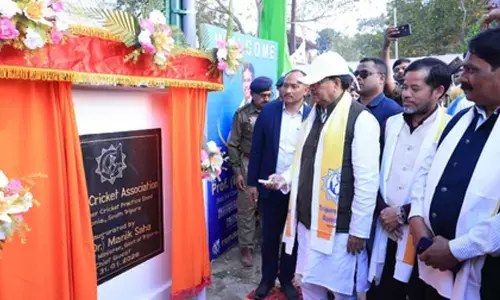Polypill along with aspirin cuts heart attacks and strokes by up to 40%: TIPS-3 Study

Polypill along with aspirin cuts heart attacks and strokes by up to 40%: TIPS-3 Study
Heart attacks, strokes and other cardiovascular incidents can be cut by 20 to 40 per cent through use of a polypill which combines three blood pressure and one lipid lowering medications taken alone or with aspirin.
Heart attacks, strokes and other cardiovascular incidents can be cut by 20 to 40 per cent through use of a polypill which combines three blood pressure and one lipid lowering medications taken alone or with aspirin.
TIPS-3, an international study of people with no previous heart disease, but intermediate risk, found the polypill alone may reduce the risk of heart attack, stroke, revascularization procedures (such as angioplasty or heart surgery) or other cardiovascular incidents by about 20 per cent. The combination of the polypill and aspirin may reduce those cardiovascular events by up 40 per cent.
"A polypill is not only effective, it is likely to be cost effective since it is based on using commonly used generic drugs," said Prem Pais, co-principal investigator of the study and professor of St. John's Medical College and Research Institute in Bangalore, India. "A polypill is convenient for patients to use as it combines several effective drugs in a single pill and is taken once a day, which would be expected to improve adherence."
"This is the start of a transformational approach to preventing heart disease, we could save millions of people from experiencing serious heart disease or stroke each year with effective use of the polypill and aspirin," said Salim Yusuf, co-principal investigator for the study and professor of medicine at McMaster University in Canada.
As the most common serious illness globally, cardiovascular diseases account for about 18 million deaths each year, with more than 80 per cent of those in low-income and middle-income countries. More than 40 million people around the world are impacted by cardiovascular events each year if those who recover from a heart attack or stroke are included.
Professor (Dr.) Balram Bhargava, Director General of the Indian Council of Medical Research (ICMR) said that, "this result is very encouraging, and I am so pleased that Indian investigators led by Dr. Prem Pais and Dr. Denis Xavier at St. John's have made a major global contribution. This is another example of India's contribution to global science. The polypill strategy is worth considering for widespread use. Costs can be further reduced for our people if and when it enters our national programs."
The study was conducted in 89 centres from nine countries, including 39 centres in India and was coordinated globally by the Population Health Research Institute (PHRI) of McMaster University and Hamilton Health Sciences in Canada. In India it was coordinated by St. John's Medical College and Research Institute in Bangalore.
This study took about 8 years to complete globally with participants taking medication for an average of 4.5 years. "Studies of this nature are very difficult to conduct as it involves many centres and participants have to be followed up at least twice a year. We in India recruited 49% of the total sample size. This was possible for us as we had built a collaboration over two decades and most of the investigators are our close friends who are keen on the scientific question", said Denis Xavier, Professor at St. John's and head of the division of clinical research.
Today the study was published in The New England Journal of Medicine and presented by the co-principal investigators at the 2020 American Heart Association scientific sessions.
The study of 5,714 people from nine countries, particularly India and the Philippines, looked at the polypill alone compared to a placebo; aspirin alone versus a placebo, and the polypill plus aspirin versus a double placebo. The men in the study were 50 or older and the women were 55 or older.
Although the formulation of different polypills may vary, the polypill used in this study included 40 mg simvastatin; 100 mg of atenolol; 25mg of hydrochlorothiazide, and 10 mg of ramipril. It can be combined with 75 mg of aspirin a day.
"The next generation of polypills will likely have greater reductions in risk factors and so can be even more effective at cutting heart disease as the formulations of polypills improve," said Yusuf.
The study found only 4.4 per cent of those who took the polypill alone had a heart attack, stroke, revascularization procedure or died of cardiovascular problems compared to 5.5 per cent who took the placebo. Of those who took just the aspirin the incidence was 4.1 per cent compared to 4.7 per cent of those with the placebo.
The benefits of combined polypill plus aspirin in those who continued to take the medications without interruption were larger and their use was associated with a 40 per cent reduction in risk. Among those who took the polypill along with aspirin, 4.1 per cent experienced a serious cardiovascular event, compared to 5.8 per cent of those who had the double placebo.
Diana Tay, senior partner in innovations at Wellcome Trust UK said: "We are delighted by the findings from the TIPS-3 study, which was supported by Wellcome.
The TIPS-3 study is supported by several agencies including Wellcome Trust UK, Canadian Institutes of Health Research, Heart and Stroke Foundation of Canada, Hamilton Health Sciences Research Institute, Canada, St. John's Research Institute, Bangalore and Cadila Pharmaceuticals.














